Localized Water and Rangeland Management in Karamoja: Lessons from a participatory review
Evidence Briefs and Policy Briefs
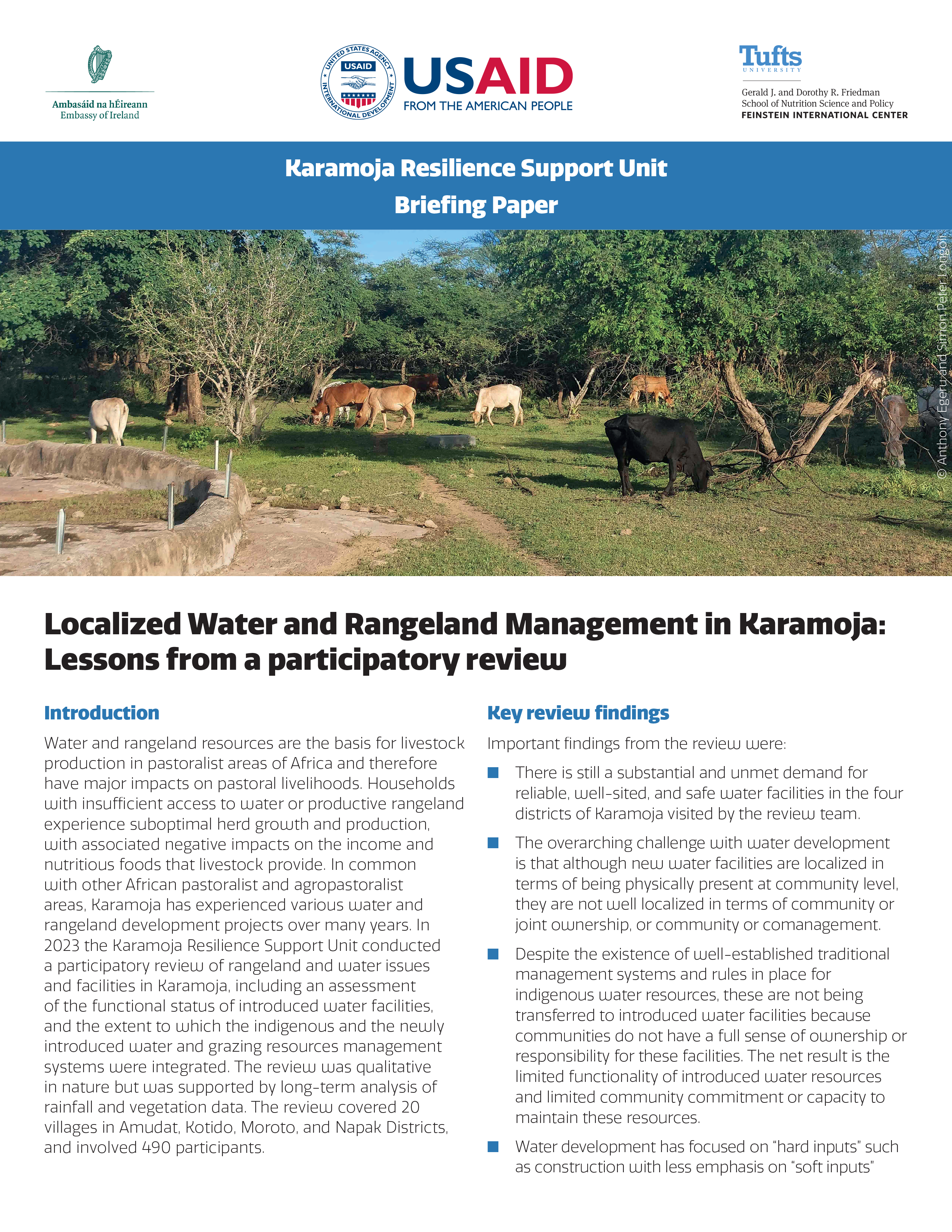
Localized Water and Rangeland Management in Karamoja: Lessons from a participatory review
Water and rangeland resources are the basis for livestock production in pastoralist areas of Africa and therefore have major impacts on pastoral livelihoods. Households with insufficient access to water or productive rangeland experience suboptimal herd growth and production, with associated negative impacts on the income and nutritious foods that livestock provide. In common with other African pastoralist and agropastoralist areas,
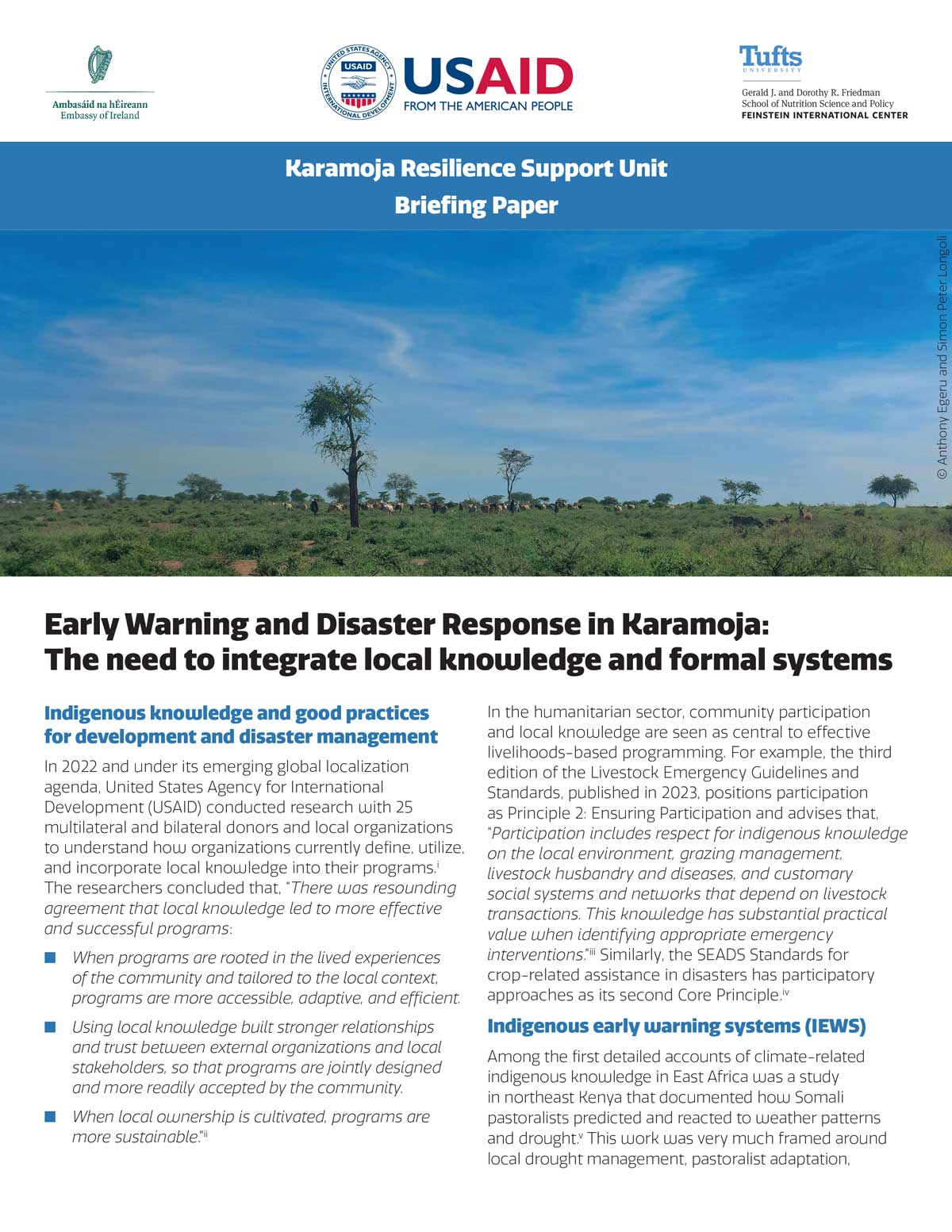
Early Warning and Disaster Response in Karamoja: The need to integrate local knowledge and formal systems
A genuine localized approach to early warning should shift the approach to more of a partnership and coacceptance of the strengths and weaknesses of indigenous and conventional systems.
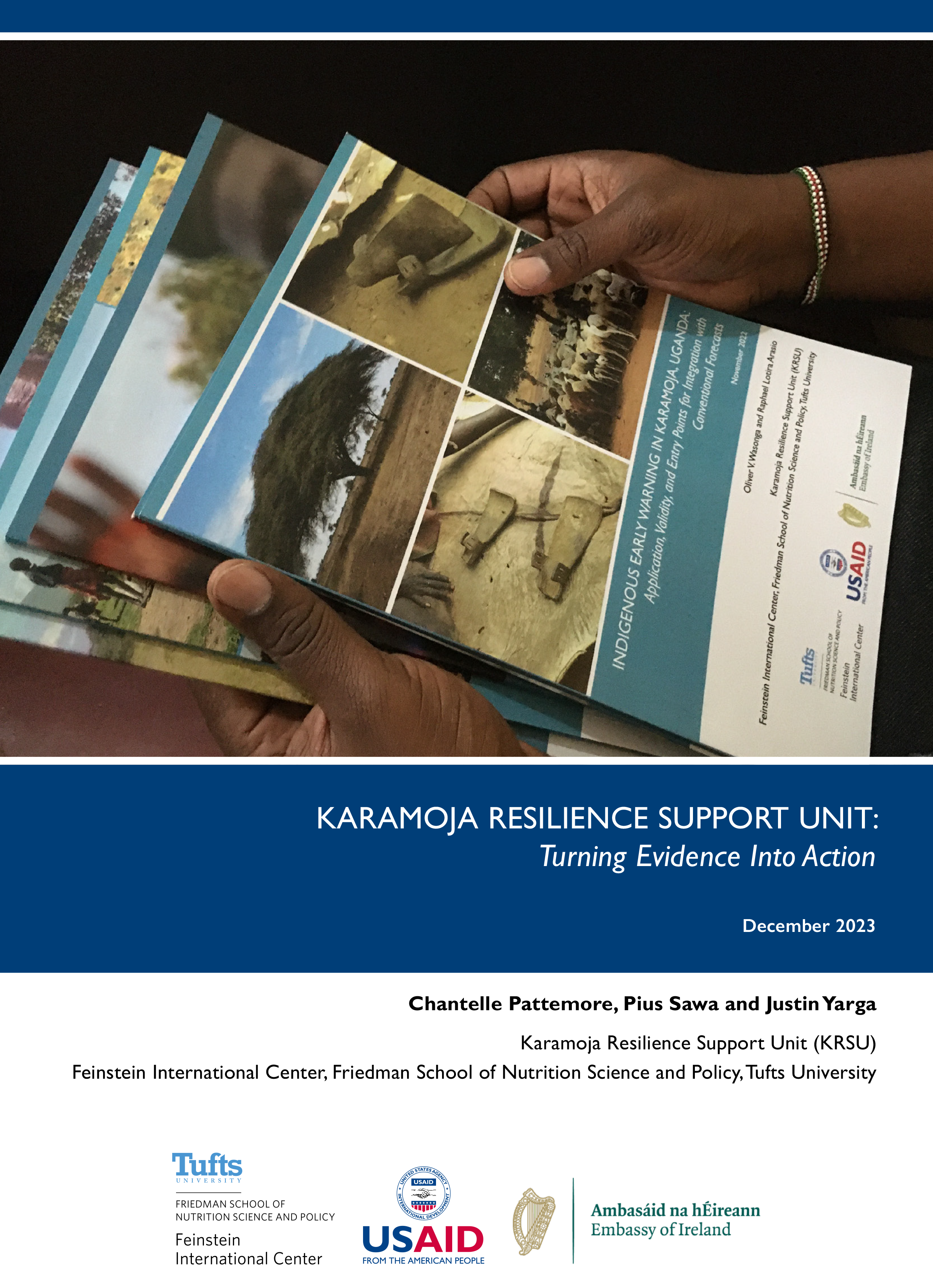
KARAMOJA RESILIENCE SUPPORT UNIT: Turning Evidence Into Action
To gauge understanding of how KRSU’s work benefits and is utilized in Karamoja, a rapid review was conducted in November and December 2023. The review involved face-to-face interviews with a number of the organization’s partners – including non-governmental organizations (NGOs), universities, academics, and donors.
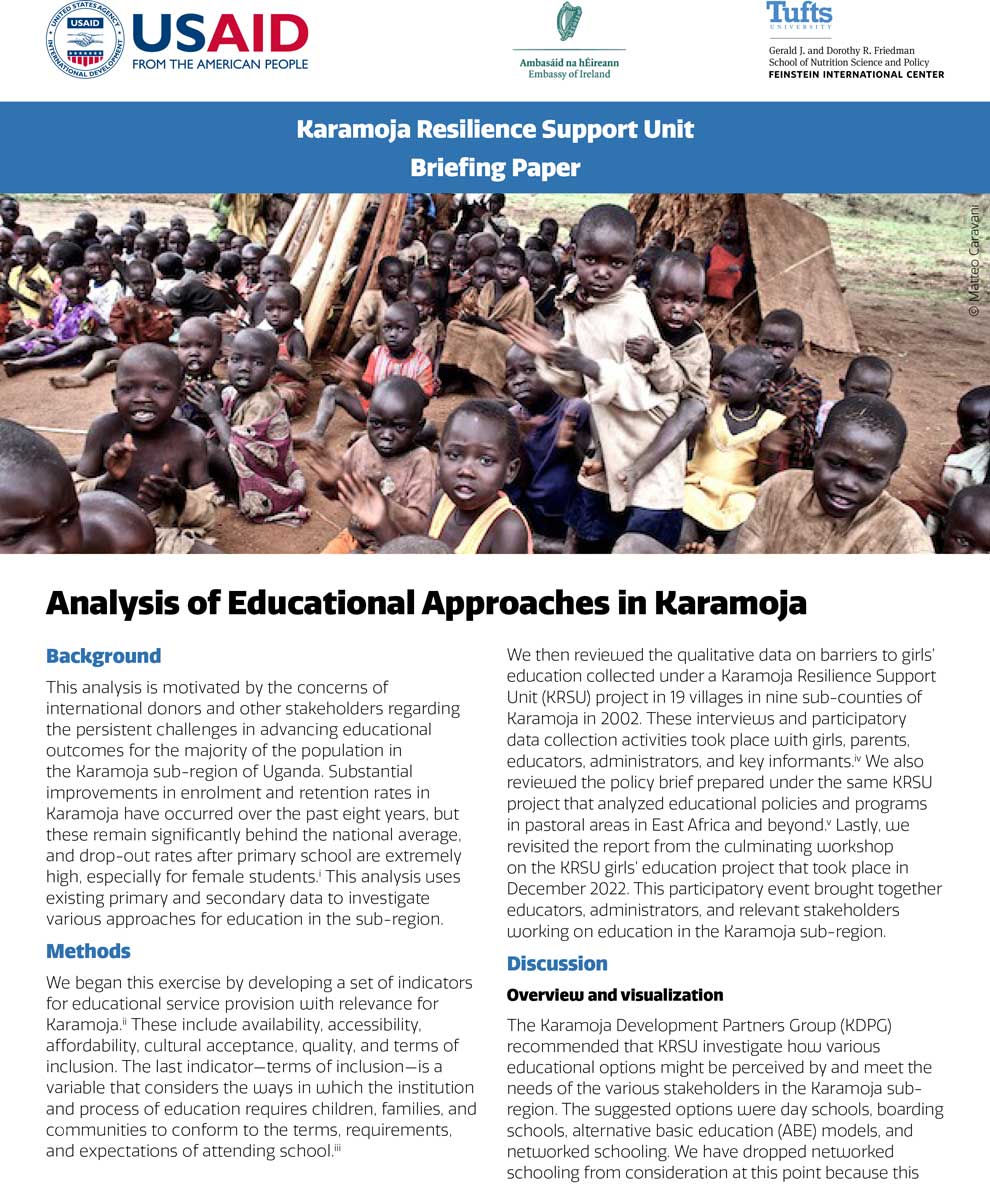
Analysis of Educational Approaches in Karamoja
This analysis is motivated by the concerns of international donors and other stakeholders regarding the persistent challenges in advancing educational outcomes for the majority of the population in the Karamoja sub-region of Uganda. Substantial improvements in enrolment and retention rates in Karamoja have occurred over the past eight years, but these remain significantly behind the national average, and drop-out rates after primary school are extremely high, especially for female students.i This analysis uses existing primary and secondary data to investigate various approaches for education in the sub-region.
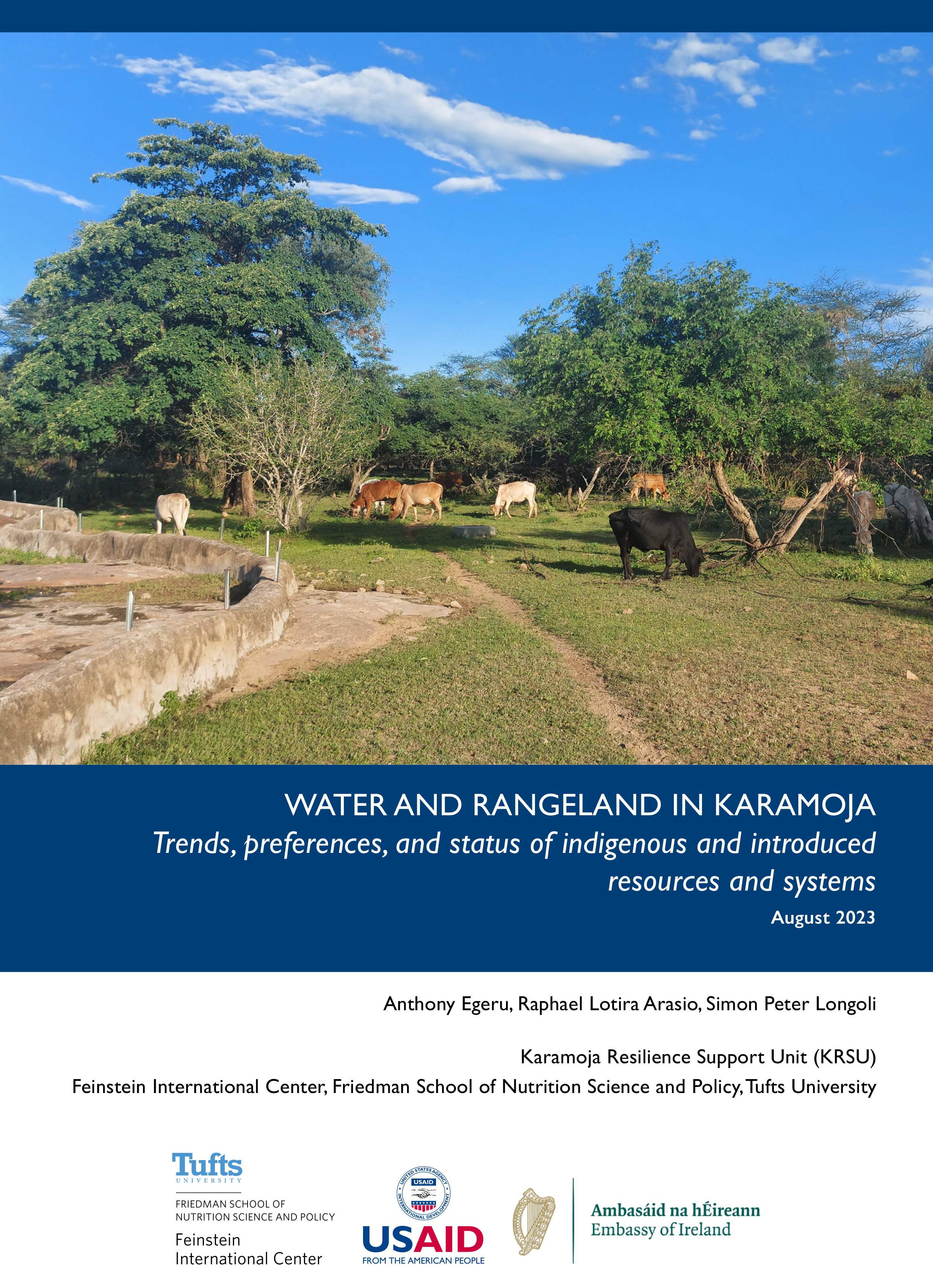
WATER AND RANGELAND IN KARAMOJA
Water and rangeland resources are the basis for livestock production in pastoralist areas of Africa and therefore have major impacts on pastoral livelihoods. Households with insufficient access to water or productive rangeland experience suboptimal herd growth and production, with associated negative impacts on the income and nutritious foods that livestock provide.
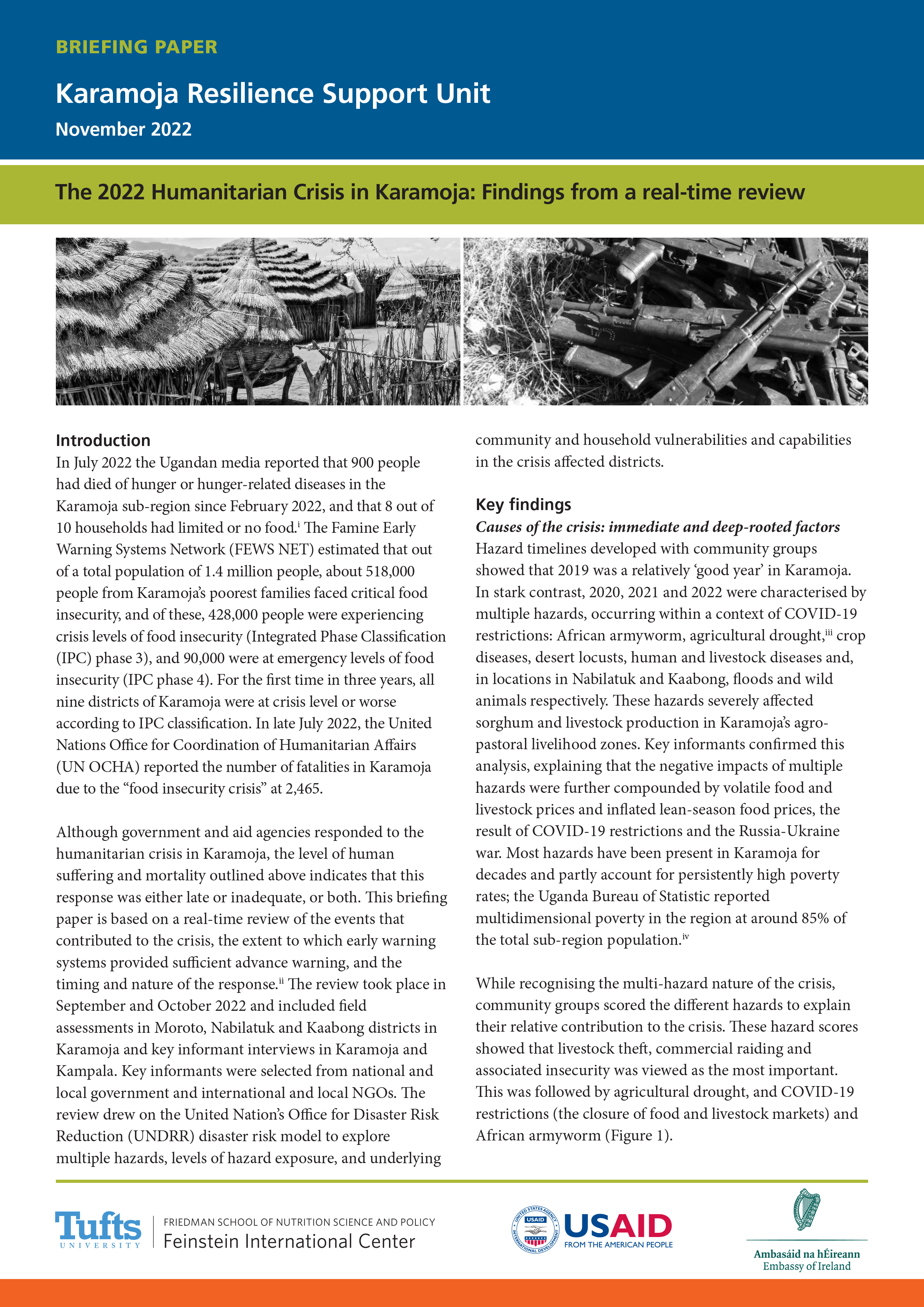
The 2022 Humanitarian Crisis in Karamoja: Findings from a real-time review
In July 2022 the Ugandan media reported that 900 people had died of hunger or hunger-related diseases in the Karamoja sub-region since February 2022, and that 8 out of 10 households had limited or no food.i
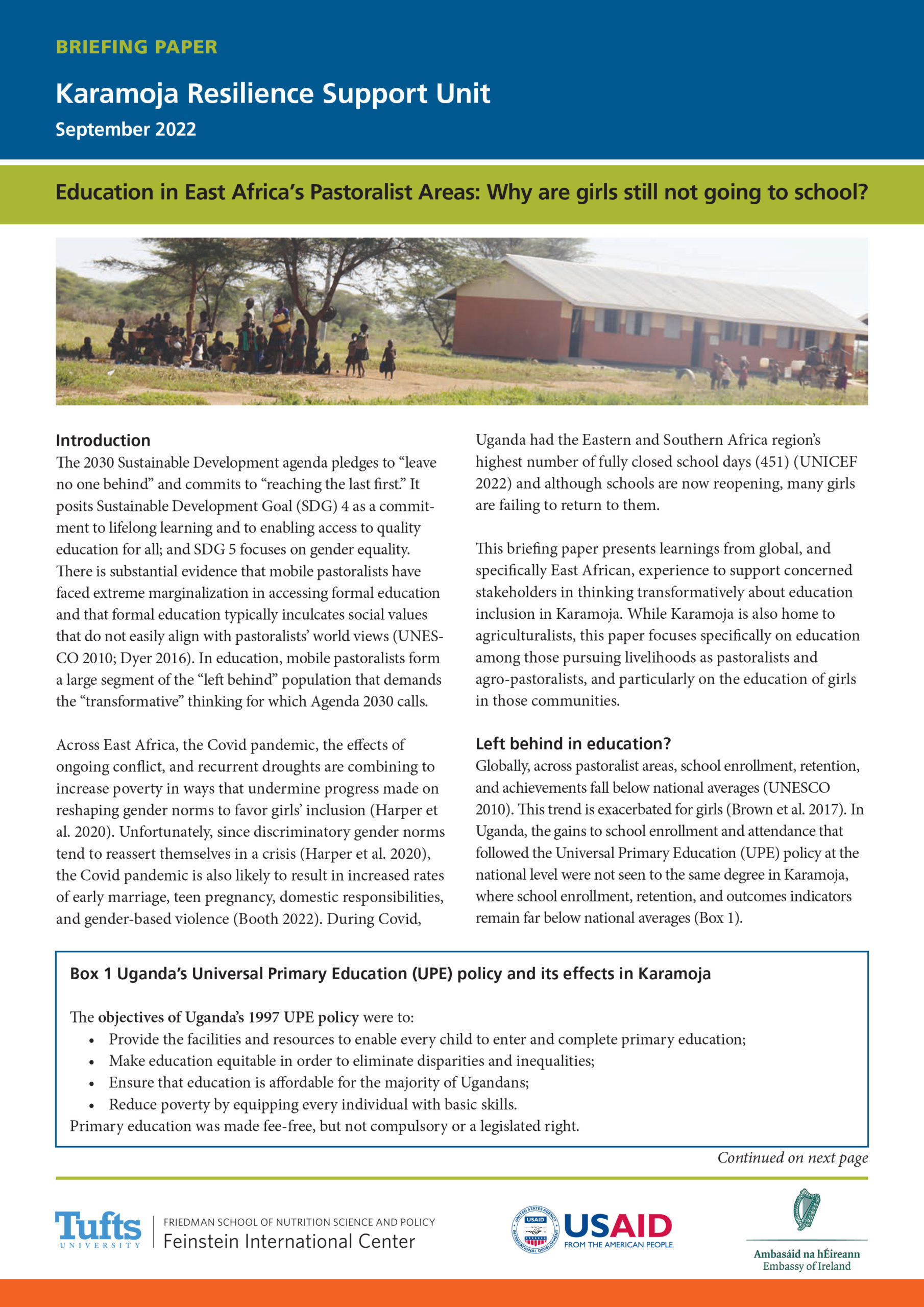
Education in East Africa’s Pastoralist Areas: Why are girls still not going to school?
This briefing paper presents learnings from global, and specifically East African, experience to support concerned stakeholders in thinking transformatively about education inclusion in Karamoja. While Karamoja is also home to agriculturalists, this paper focuses specifically on education among those pursuing livelihoods as pastoralists and agro-pastoralists, and particularly on the education of girls in those communities.
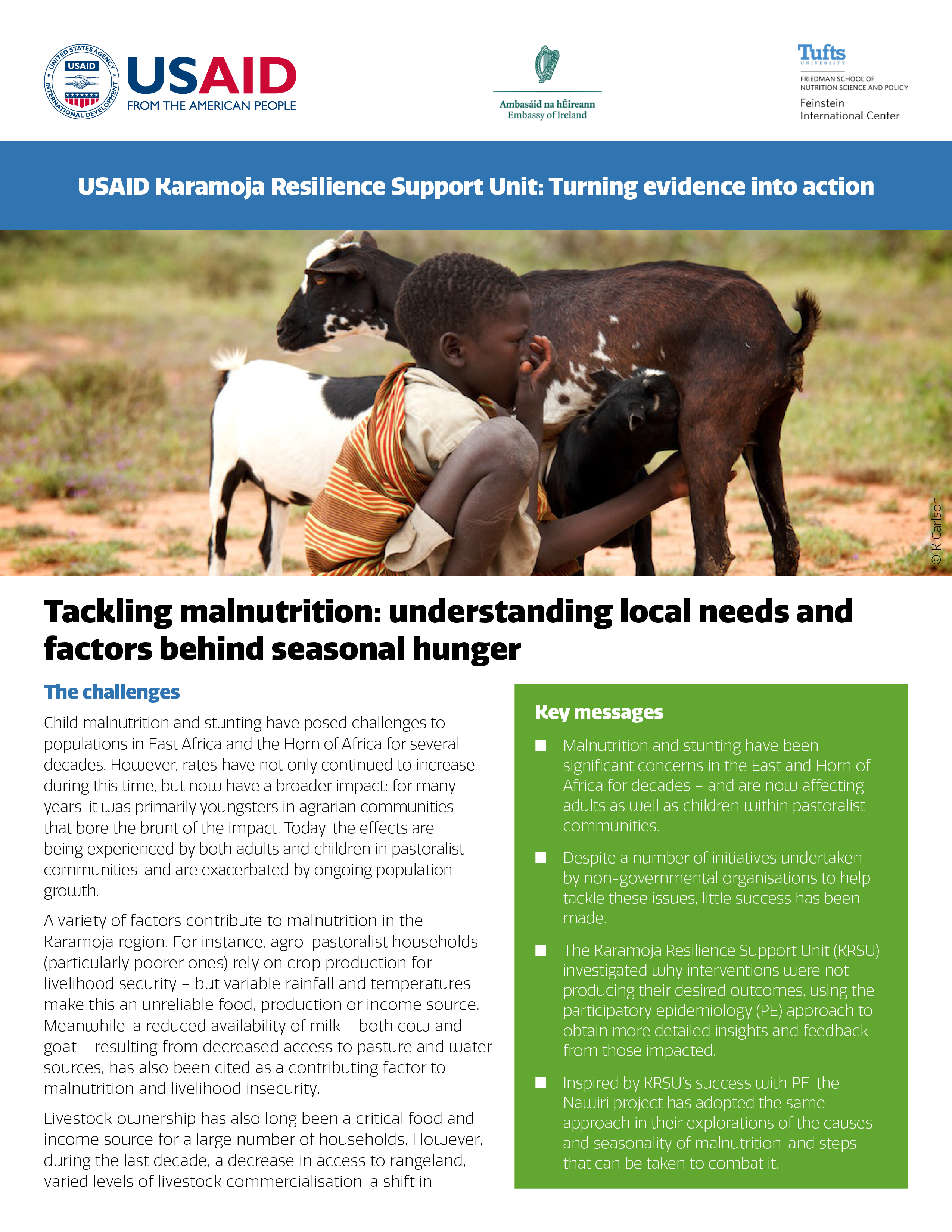
Tackling malnutrition: understanding local needs and factors behind seasonal hunger
Child malnutrition and stunting have posed challenges to populations in East Africa and the Horn of Africa for several decades. However, rates have not only continued to increase during this time, but now have a broader impact: for many years, it was primarily youngsters in agrarian communities that bore the brunt of the impact. Today, the effects are being experienced by both adults and children in pastoralist communities, and are exacerbated by ongoing population growth.

Improving practice: enhancing pastoralism policy
Although extensive research has been conducted into pastoralism, the sector – from its actors and systems to economic and environmental impacts – remains largely misunderstood. This is exacerbated by the fact that those living and working in pastoral communities often have trouble effectively expressing the processes they engage in and the benefits of pastoralism.

Livestock in Karamoja: improving markets and veterinary services
As Karamoja is a predominantly a pastoralist region, market trading of livestock is key to the region’s economy. However, a number of factors – ranging from policies and seasonality to price trends and market types – prevent livestock value chain actors from maximising their income and achieving livelihood security.
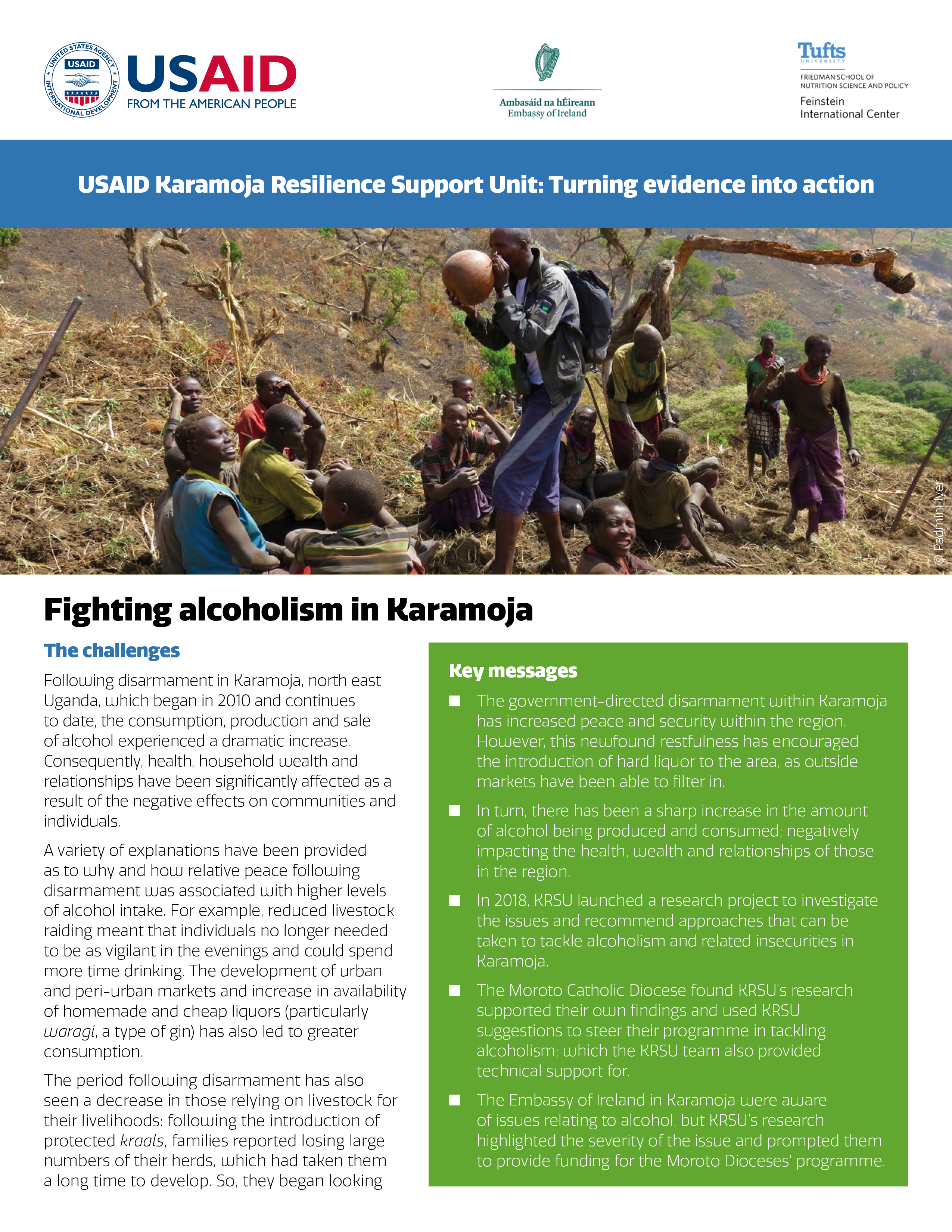
Fighting alcoholism in Karamoja
Following disarmament in Karamoja, north east Uganda, which began in 2010 and continues to date, the consumption, production and sale of alcohol experienced a dramatic increase. Consequently, health, household wealth and relationships have been significantly affected as a result of the negative effects on communities and individuals.
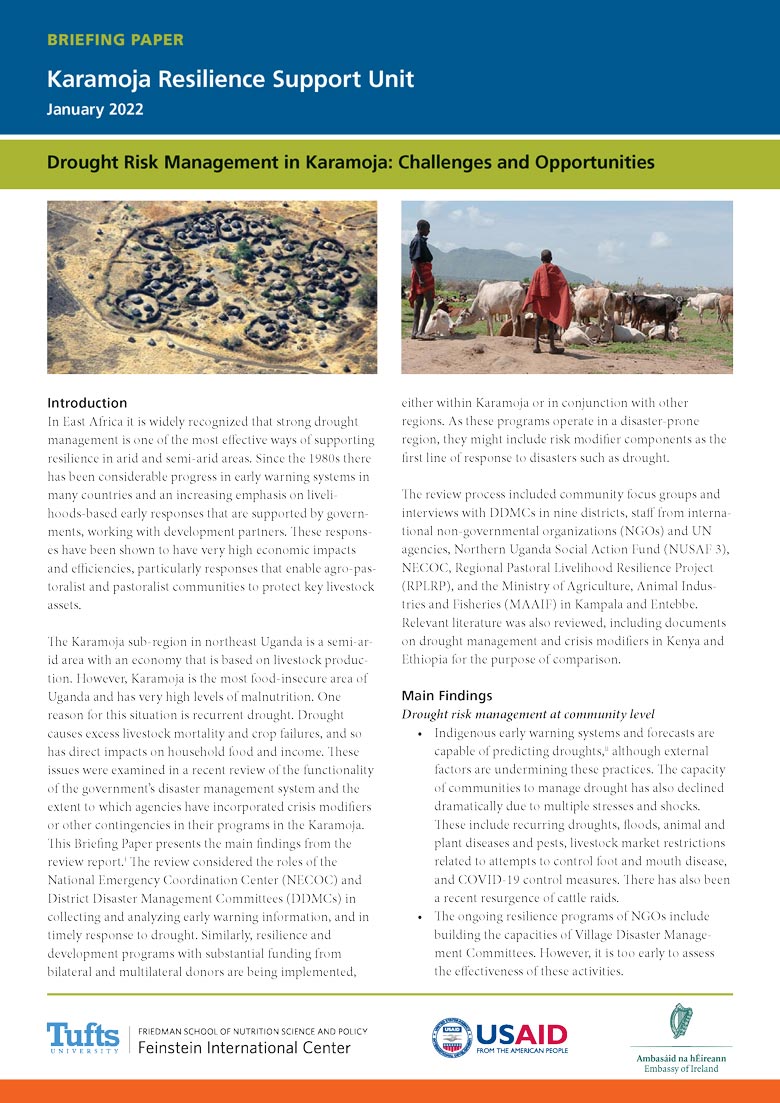
Drought Risk Management in Karamoja: Challenges and Opportunities
This Briefing Paper presents the main findings from the review report. The review considered the roles of the National Emergency Coordination Center (NECOC) and District Disaster Management Committees (DDMCs) in collecting and analyzing early warning information, and in timely response to drought.
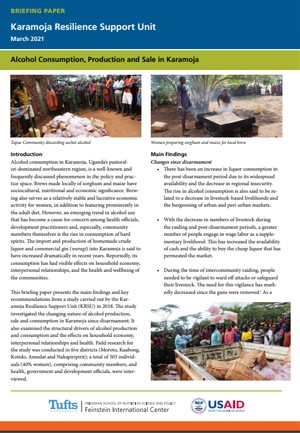
Alcohol Consumption, Production and Sale in Karamoja
Alcohol consumption in Karamoja, Uganda’s pastoralist-dominated northeastern region, is a well-known and frequently discussed phenomenon in the policy and practice space. Brews made locally of sorghum and maize have sociocultural, nutritional and economic significance. Brewing also serves as a relatively stable and lucrative economic activity for women, in addition to featuring prominently in the adult diet. However, an emerging trend in alcohol use that has become a cause for concern among health officials, development practitioners and, especially, community members themselves is the rise in consumption of hard spirits. The import and production of homemade crude liquor and commercial gin (waragi) into Karamoja is said to have increased dramatically in recent years. Reportedly, its consumption has had visible effects on household economy, interpersonal relationships, and the health and wellbeing of the communities.
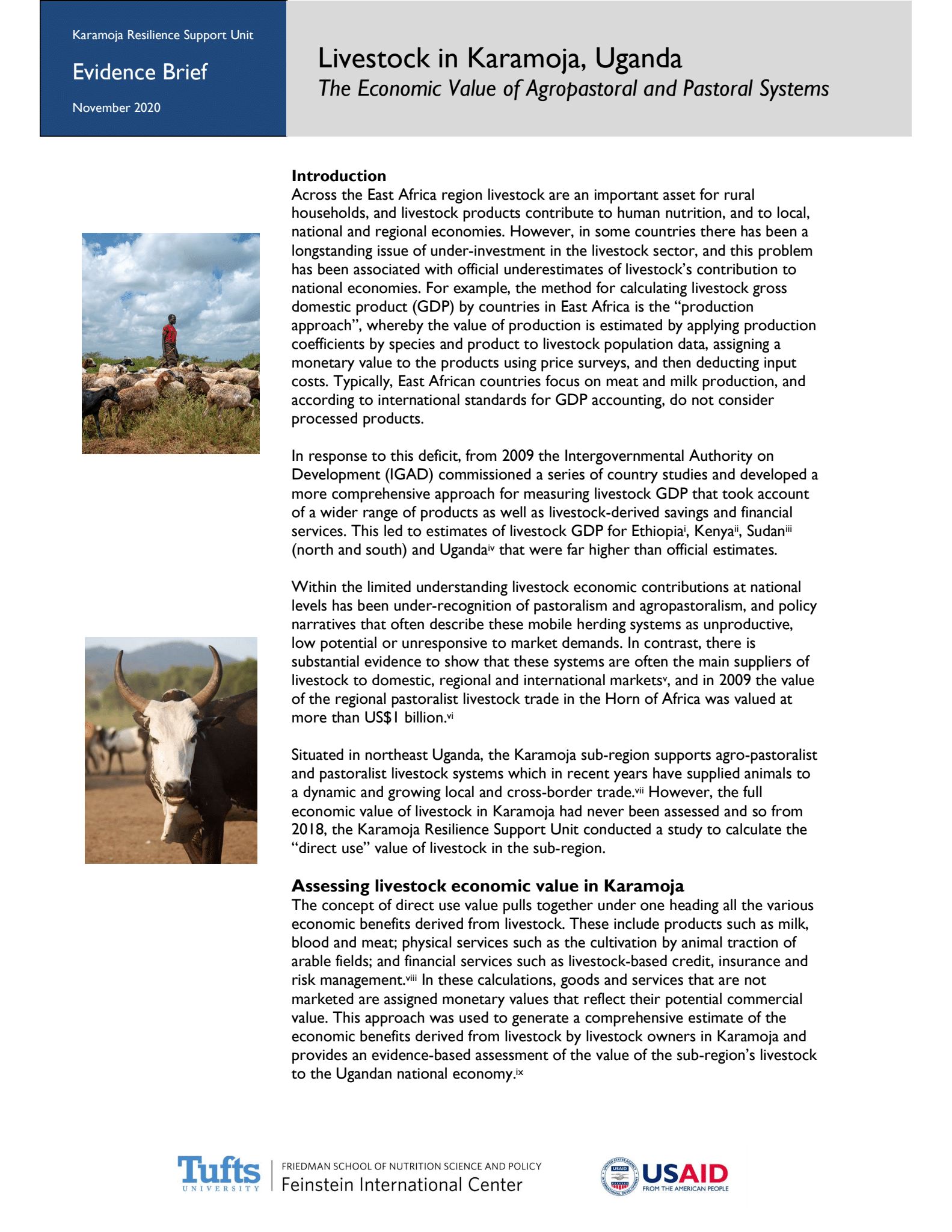
Livestock in Karamoja, Uganda- The Economic Value of Agropastoral and Pastoral Systems
Across the East Africa region livestock are an important asset for rural households, and livestock products contribute to human nutrition, and to local, national and regional economies. However, in some countries there has been a longstanding issue of under-investment in the livestock sector, and this problem has been associated with official underestimates of livestock’s contribution to national economies.
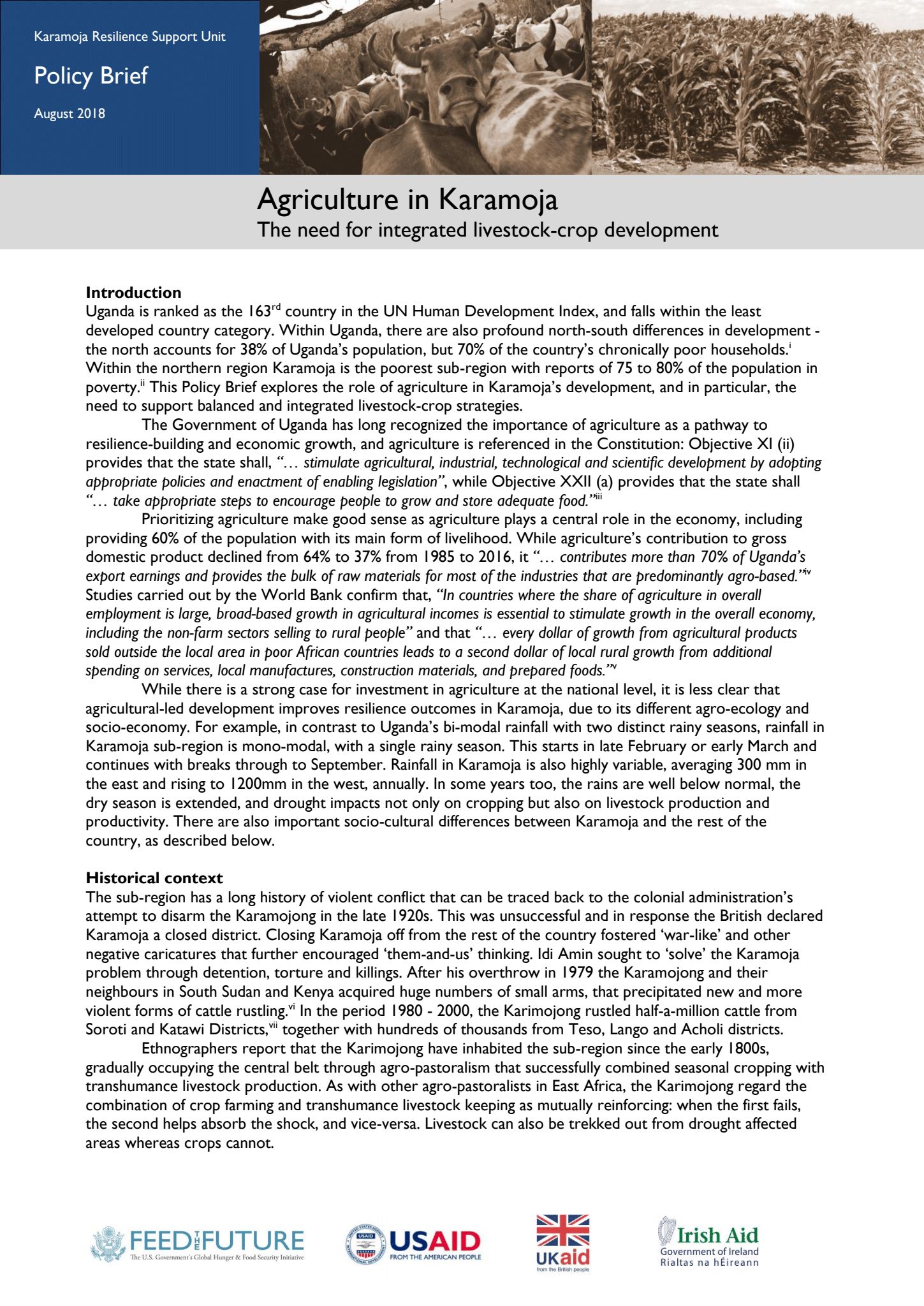
Agriculture in Karamoja-The need for integrated livestock-crop development
This Policy Brief explores the role of agriculture in Karamoja’s development, and in particular, the need to support balanced and integrated livestock-crop strategies.
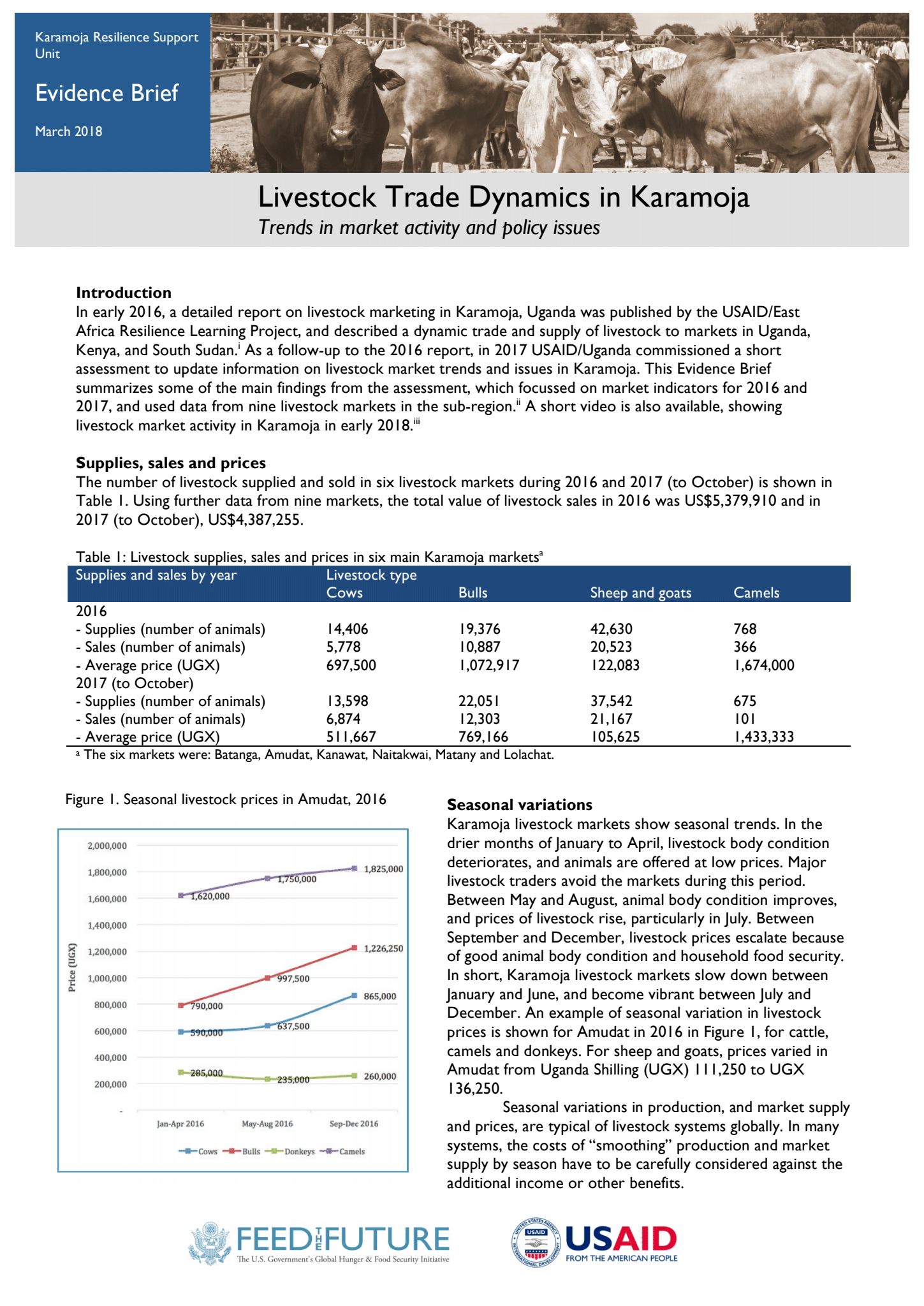
Livestock Trade Dynamics in Karamoja-Trends in market activity and policy issues
In early 2016, a detailed report on livestock marketing in Karamoja, Uganda was published by the USAID/East Africa Resilience Learning Project, and described a dynamic trade and supply of livestock to markets in Uganda, Kenya, and South Sudan. As a follow-up to the 2016 report, in 2017 USAID/Uganda commissioned a short assessment to update information on livestock market trends and issues in Karamoja.
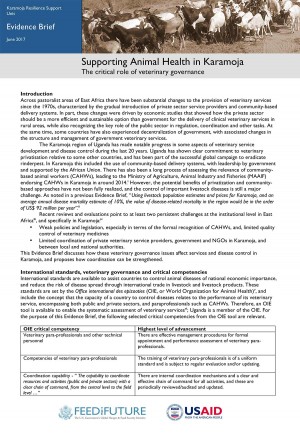
KRSU Veterinary Support Brief
Across pastoralist areas of East Africa there have been substantial changes to the provision of veterinary services since the 1970s, characterized by the gradual introduction of private sector service providers and community-based delivery systems.
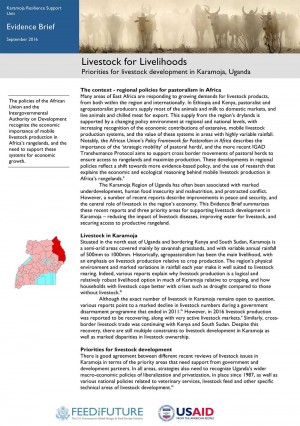
Livestock for Livelihoods- Priorities for livestock development in Karamoja, Uganda
Many areas of East Africa are responding to growing demands for livestock products, from both within the region and internationally. In Ethiopia and Kenya, pastoralist and agropastoralist producers supply most of the animals and milk to domestic markets, and live animals and chilled meat for export. This supply from the region’s drylands is supported by a changing policy environment at regional and national levels, with increasing recognition of the economic contributions of extensive, mobile livestock production systems, and the value of these systems in areas with highly variable rainfall.